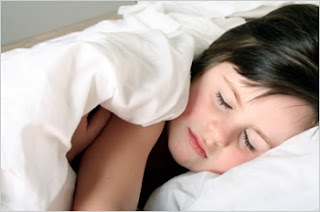HEALTH - BED WETTING
Bed wetting, or nocturnal enuresis, refers to the unintentional passage of urine during sleep. Enuresis is the medical term for wetting, whether in the clothing during the day or in bed at night. Another name for enuresis is urinary incontinence. For infants and young children, urination is involuntary. Wetting is normal for them. Most children achieve some degree of bladder control by 4 years of age. Daytime control is usually achieved first while nighttime control comes later. The age at which bladder control is expected varies considerably. Some parents expect dryness at a very early age, while others not until much later. Such a time line may reflect the culture and attitudes of the parents and caregivers. Factors that affect the age at which wetting is considered a problem include the following: The child's gender: Bed wetting is more common in boys. The child's development and maturity .The child's overall physical and emotional health chronic illness and/or emotional and physical abuse may predispose to bed wetting. Bed wetting is a very common problem. Parents must realize that enuresis is involuntary.
The child who wets the bed needs parental support and reassurance. About 5-7 million children in the United States wet the bed. Most children simply outgrow bed wetting with a rate of resolution of the issue of about 15% per year. While bed wetting can be a symptom of an underlying disease, the large majority of children who wet the bed have no underlying disease. In fact, a true organic cause is identified in only about 1% of children who wet the bed. However, this does not mean that the child who wets the bed can control it or is doing it on purpose. Children who wet the bed are not lazy, willful, or disobedient. There are two types of bed wetting: primary and secondary. Primary bed wetting refers to bed wetting that has been ongoing since early childhood without a break.
A child with primary bed wetting has never been dry at night for any significant length of time. Secondary bed wetting is bed wetting that starts again after the child has been dry at night for a significant period of time. In general, primary bed wetting probably indicates immaturity of the nervous system. A bed wetting child does not recognize the sensation of the full bladder during sleep and thus does not awaken during sleep to urinate into the toilet.
Bed wetting Treatment
General principles
Bed wetting is typically seen more as a social disturbance than a medical disease. It creates embarrassment and anxiety in the child and sometimes conflict with parents. The single most important thing parents can and should do is to be supportive and reassuring rather than blaming and punishing. Primary nocturnal enuresis has a very high rate of spontaneous resolution of approximately 15% per year.The many treatment options range from home remedies to drugs, even surgery for children with anatomical problems. Underlying medical or emotional conditions should first be ruled out.
If there is an underlying condition, it should be treated and eradicated. If bed wetting persists once these steps are taken, however, there is considerable debate as to how and when to treat. Treatment of uncomplicated bed wetting is not appropriate for children younger than 5 years of age.Because a majority of children 5 years and older spontaneously stop bed wetting without any treatment, many medical professionals generally choose to observe the child until age 7.

